A fall 2021 retrospective
Over the last few months I’ve had the pleasure of teaching the introductory course on “Approaches to International and Global History” for the MA program that Columbia jointly runs with the LSE. It wasn’t a course I had taught before. But this is one of the fun things about teaching – the impulses you don’t expect.
I picked a list of books and articles that I wanted to read and I thought would drive an interesting methodological conversation. NB: This is not an introduction to International and Global History, but an introduction to “approaches” to such a history. Nevertheless, I wanted a broadly chronological spine.
To my mind, the course really worked. I was very lucky to have a great group of smart and highly engaged students who drove a fascinating discussion.
Week 1 I started with a Brief History of Commercial Capitalism by Jairus Banaji because for the first week I wanted a text that was short, but “high concept” and challenging.
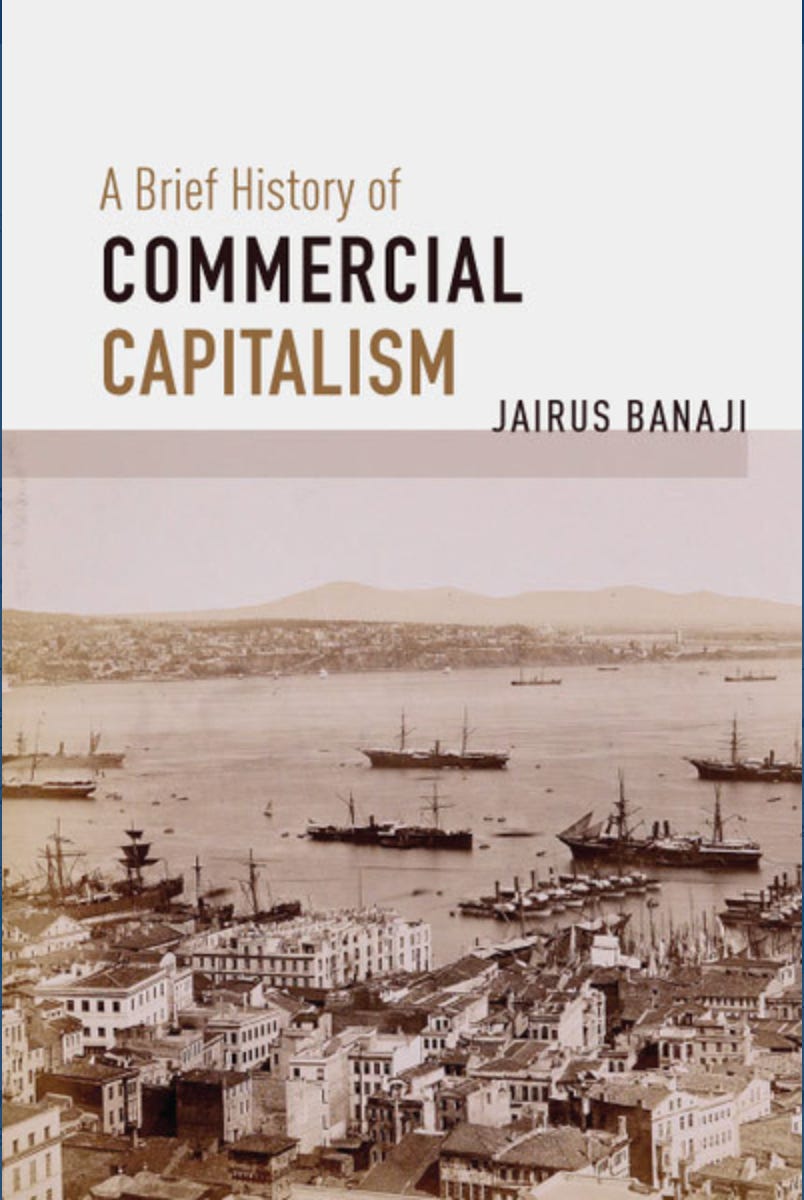
#2 was a long selection from Geoffrey Parker. Global Crisis: War, Climate Change and Catastrophe in the Seventeenth Century (2013) – to address climate and the early modern global crisis from every angle.
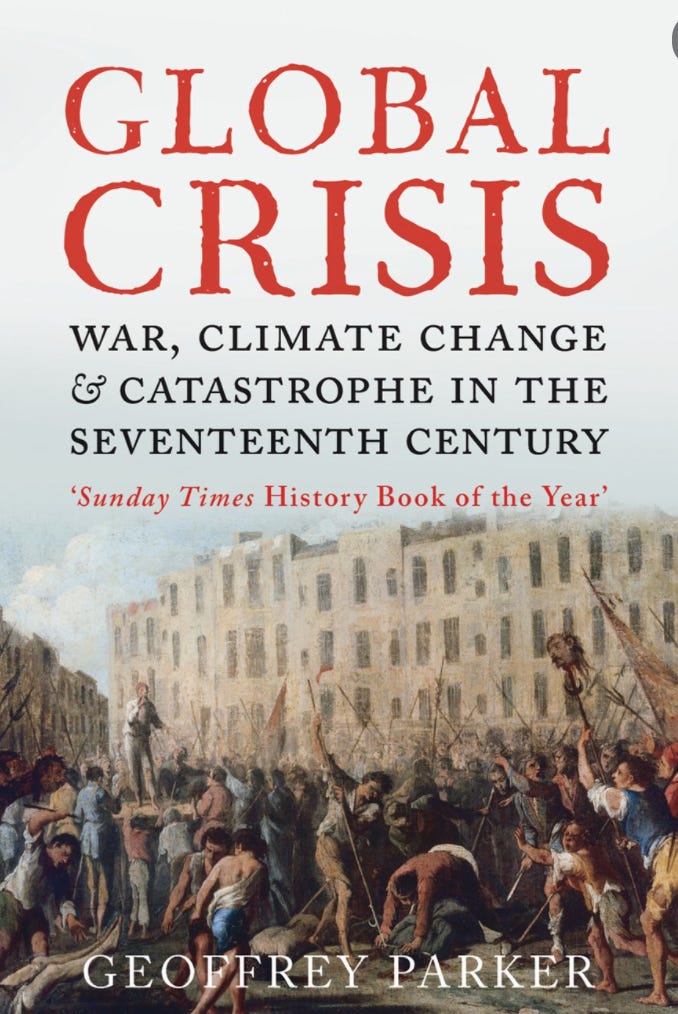
#3 The Great Divergence: Pomeranz and his critics. Not just because it addresses the economy, but because it raises such interesting questions about causation, historical method, politics etc.
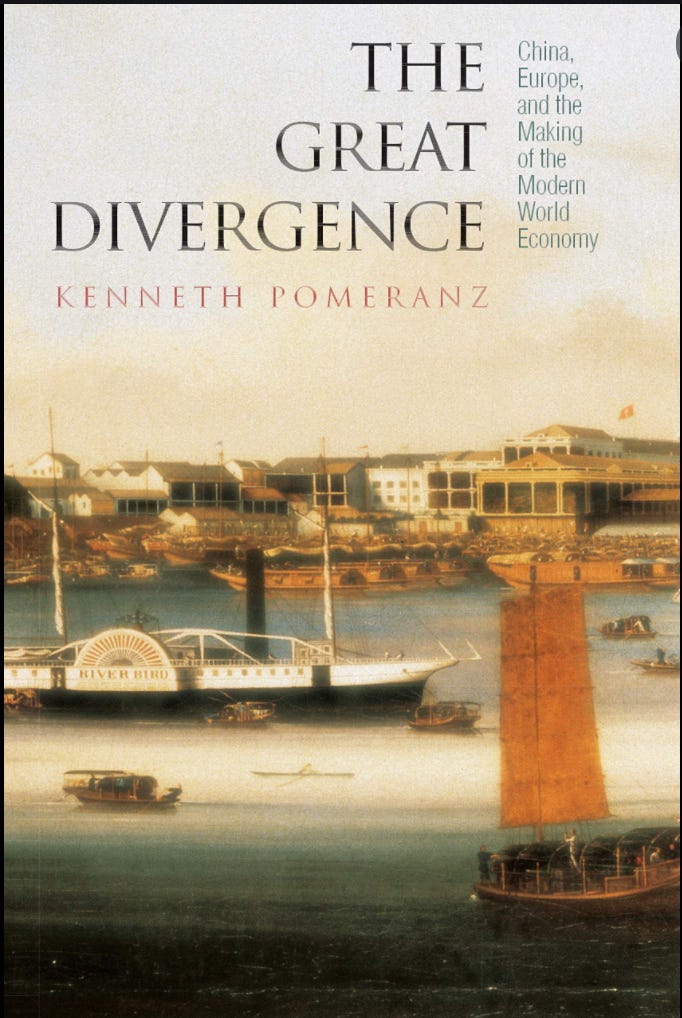
A pairing with Prasannan Parthasarathi is always stimulating.
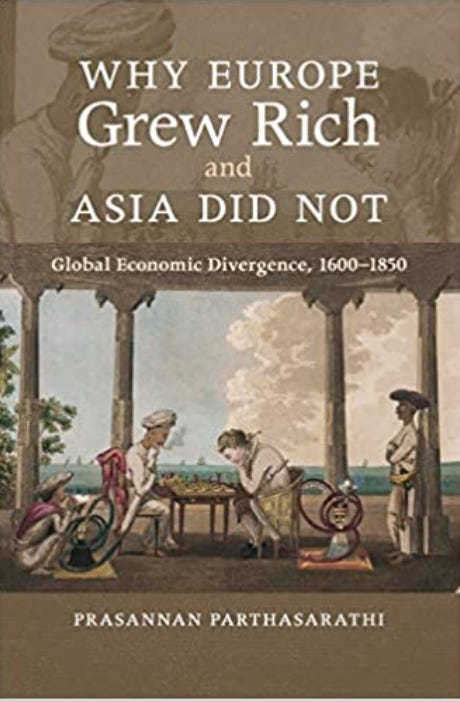
#4 Anthropology and history: Sidney Mintz
Sweetness and Power is obligatory reading on courses like this. For good reason. It is a classic, but …
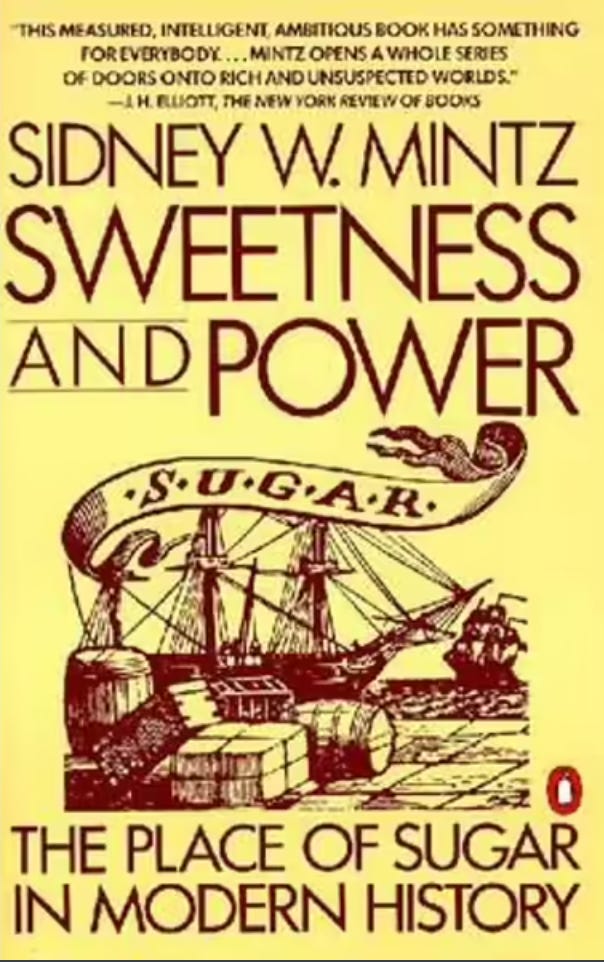
As several students remarked, it is far more interesting if read, not in isolation, or as a foundational text for “consumption studies” etc. but against backdrop of Mintz’s anthropological work that goes back to the mid century and focused not on production in the “global North” but on plantation production in Puerto Rico and the Caribbean. This essay by Mintz on the Caribbean is simply brilliant. And this essay on Columbia anthropology in the Cold War is highly illuminating.
#5 Family life and Empire: Emma Rothschild, The Inner Life of Empires. Princeton University Press, 2011.
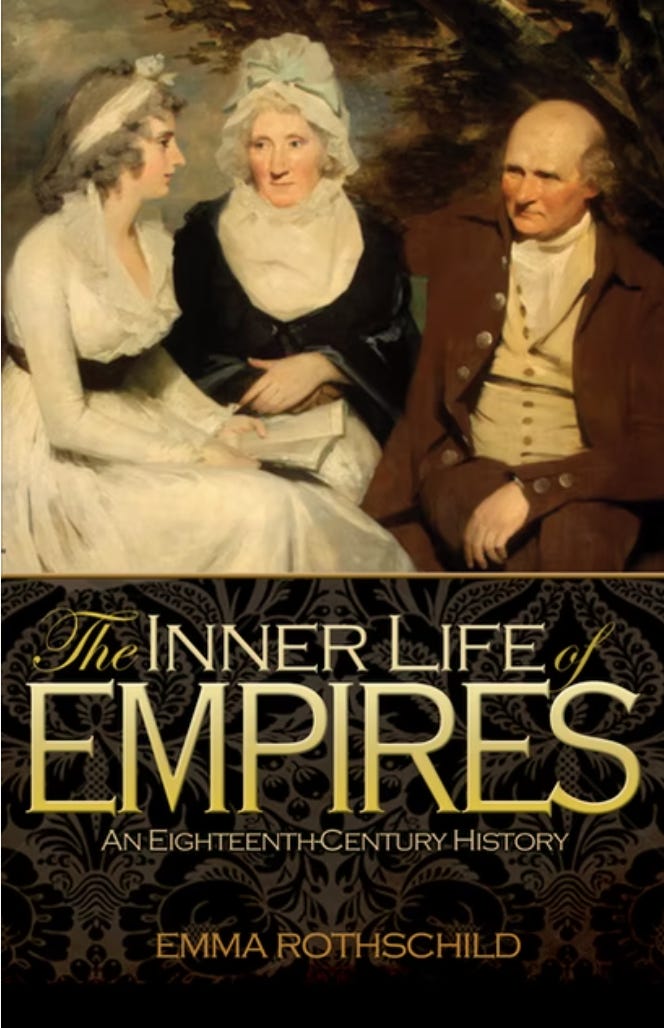
Love this book by my old friend and mentor from Cambridge. Subtle, twisty, reading 18th century through 18th-century concepts. Very smart.
#6 Revolution in global context: Haiti and the French Revolution
At the suggestion of one of the students we read Michel-Rolph Trouillot’s memorable essay: “An Unthinkable History: The Haitian Revolution as a Non-event”. Highly recommended.
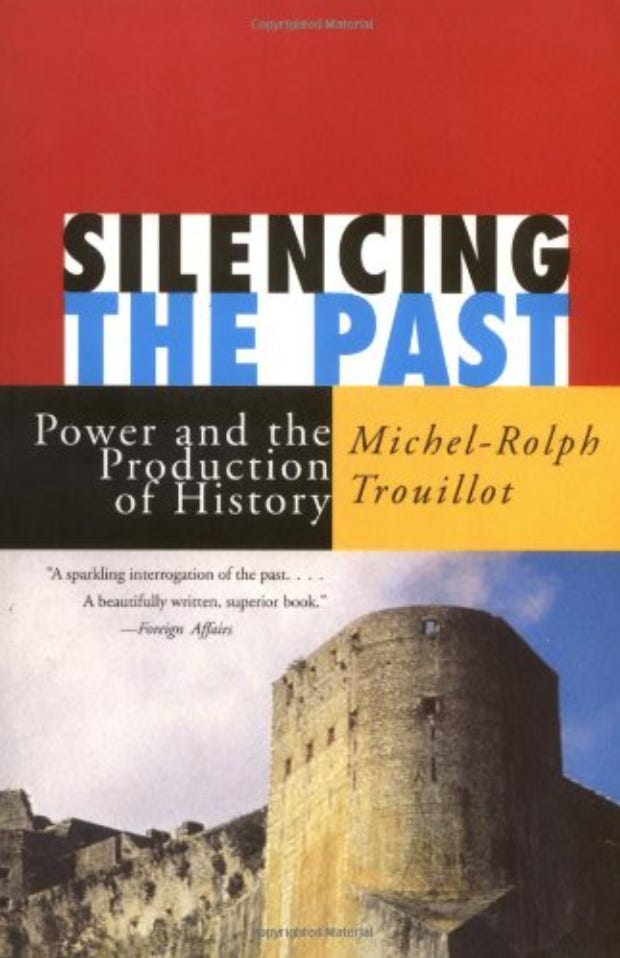
#7 Global nations.
We revisited Benedict Anderson, Imagined Communities: Reflections on the Origin and Spread of Nationalism, 2nd ed. (Verso, 1991). First time I had reread it in more than a decade. Quite a trip down memory lane. His trio of functionalist determinations: how do societies anchor power, truth, time, proved generative for the entire rest of term. We paired it with Duara, Prasenjit. Rescuing history from the nation. University of Chicago Press, 1996 which I found impressive and Rebecca Karl’s Staging the World. Chinese Nationalism at the Turn of the Twentieth Century (2002). The idea of staging the world became a bit of a theme in the following weeks.
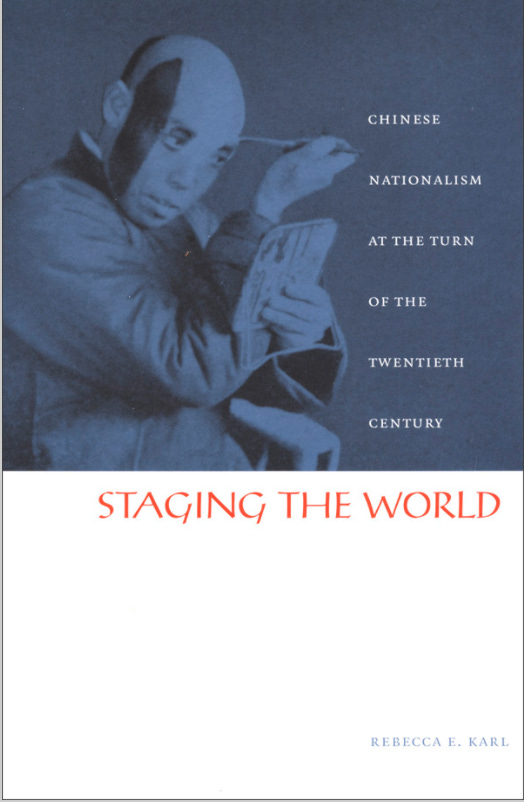
#8 On Global Time
We read Vanessa Ogle, The Global Transformation of Time, 1870-1950. The chapter I particularly recommend is the one on debates about time in the Islamic world. Mindblowing.
#9 Color Line.
We paired Mae Ngai, The Chinese Question (2021) with Marilyn Lake and Henry Reynolds. Drawing the global colour line: White men’s countries and the question of racial equality. (2008). It makes for a great “bottom-up”, “top-down” contrast. Ngai’s book has really grown on me. What is particularly impressive, is the arc from a cosmopolitan Pacific in the 1840s and 1850s to the closure of the American nation and finally the devastating conclusion in the forced-labour mines of South Africa. For me it evoked shades of the Third Reich. Lake and Reynolds is a book I come back to again and again. Can’t think of many history books that have more dramatically reorientated my thinking about the 20th century.
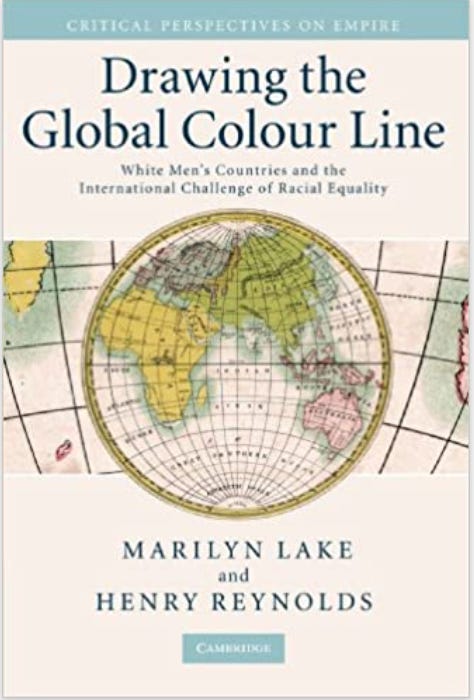
#10 The strange histories of Realism
We paired Robert Vitalis’s history of race and the making of international relations between Britain and the US, White World Order, Black Power Politics. Cornell University Press, 2016 with Matthew Specter’s fascinating book, The Atlantic Realists, which traces the origins of postwar realism to the US-German connection. Specter’s book will be out in (2022). His forensic demolition of Schmitt’s postwar self-exculpation is devastating.
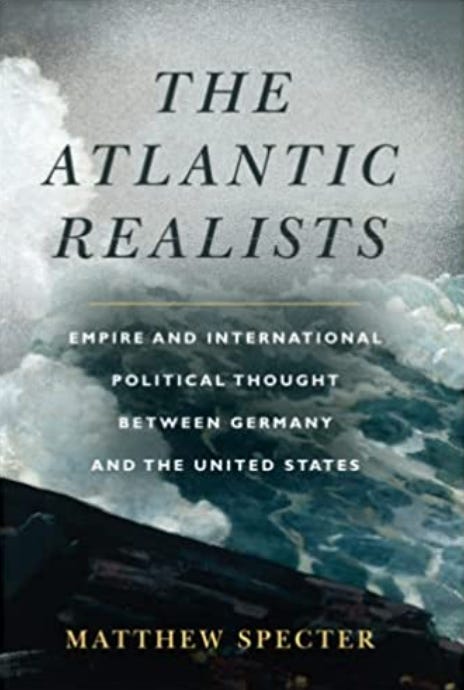
#11 Postcolonial worldmaking in a neocolonial world
Great to read Adom Getachew, Worldmaking after Empire. Princeton University Press, 2019. I remember Getachew’s PhD taking shape at Yale back in the day. Fascinating to read the finished product. Her compelling argument about the shipwreck of the postcolonial project leaves me more convinced than ever, that an intellectual history of cocoa prices after 1945 would yield major dividends. Before the oil price shock of 1973 a lot hinges on the disappointing development of cocoa prices following Ghana’s independence in 1957.
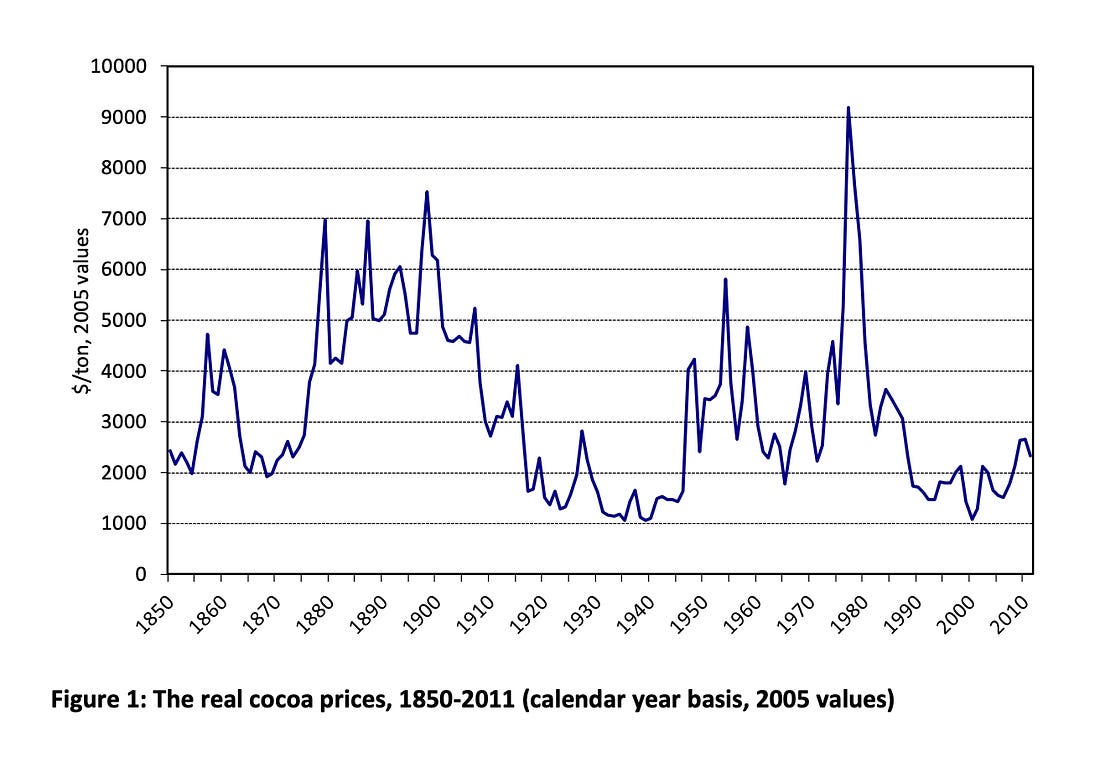
#12 Sinews of War and Trade
Really enjoyed Laleh Khalili’s Sinews of War and Trade Shipping and Capitalism in the Arabian Peninsula.
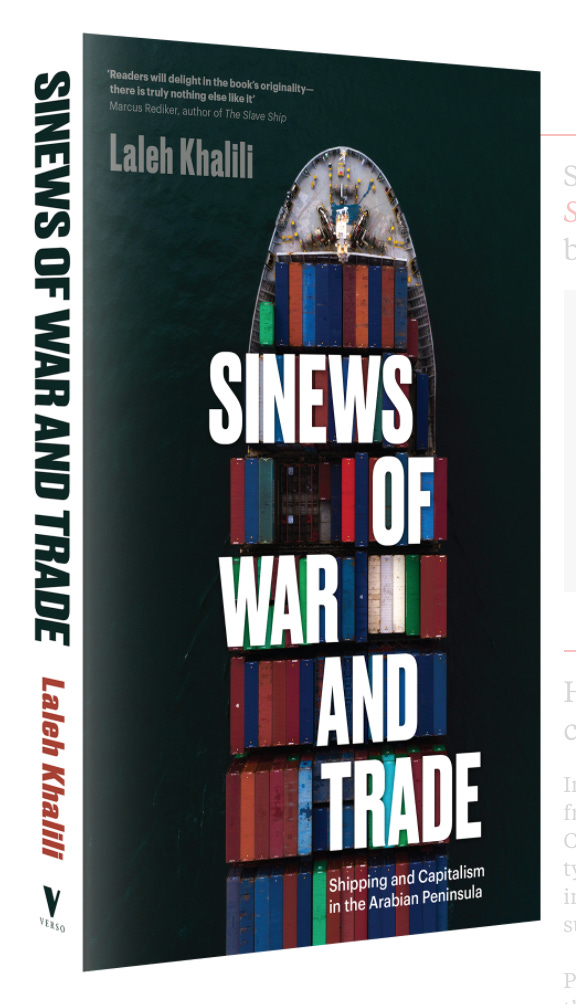
Khalili’s wonderfully exploratory method and her engaging writing, encouraged a debate about storytelling, assemblages, the 1970s and declensionist narratives, as well as business history, taking rides on container ships and the links between management consultancy and anthropology. It formed a great bridge to …
#13 Modern ruins
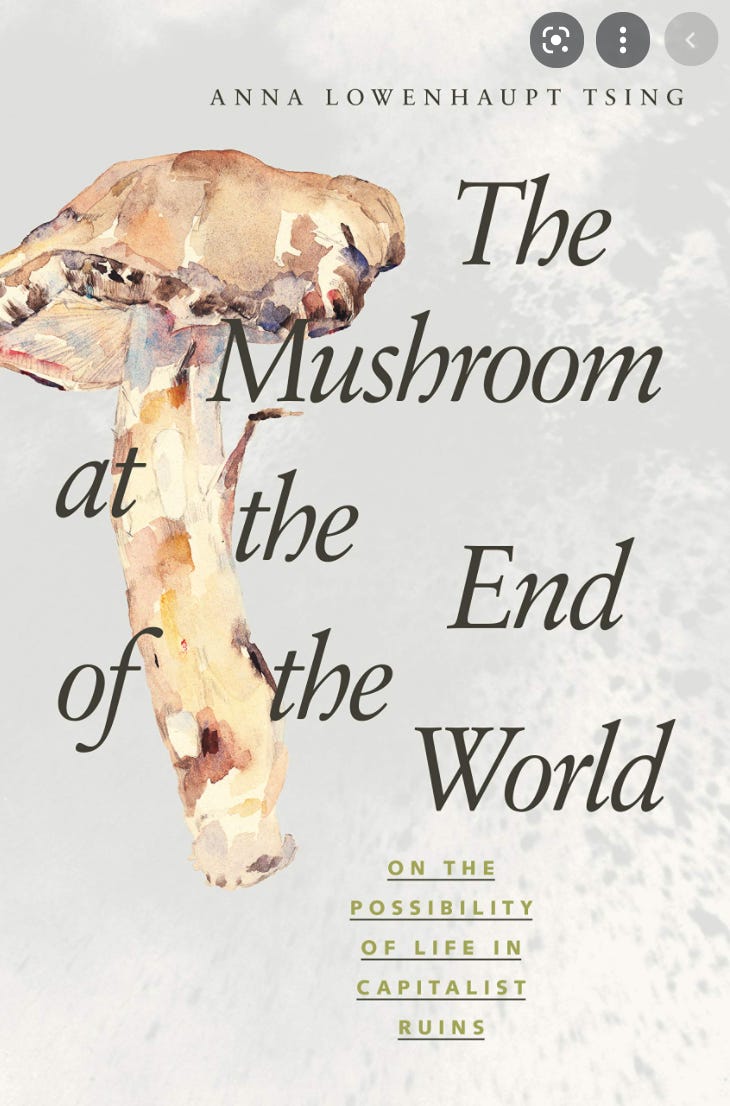
Anna Lowenhaupt Tsing, The Mushroom at the End of the World. Princeton University Press, 2015.
To my mind, this is a truly fascinating book. A micro-study, a macro-history a methodological toolkit a philosophy of history all in one. More on Tsing in a later newsletter over the holiday season.
Conclusion?
Too many to draw out here. Plus, what happens in seminar stays in seminar. But, it was an intellectual trip. Delighted with the way that the texts caused us to reflect on our own positions as “intellectual and global historians”. Delighted also that there are so many other texts that we could and should have included. I will certainly volunteer to do this again in future.
Subscribe
I’m delighted that Chartbook goes out free by email to folks across the world in all walks of life. I enjoy putting it together. But if I’m honest with myself, it takes a lot of work. If you enjoy the feed and can afford to support the mission, why not take up one of the paying options. There are three:
- The annual subscription: $50 annually
- The standard monthly subscription: $5 monthly – which gives you a bit more flexibility.
- Founders club:$ 120 annually, or another amount at your discretion – for those who really love Chartbook Newsletter, or read it in a professional setting in which you regularly pay for subscriptions, please consider signing up for the Founders Club.Subscribe nowAnd since it is holiday season, why not give Chartbook as a gift:Give a gift subscriptionAll very best, AT
